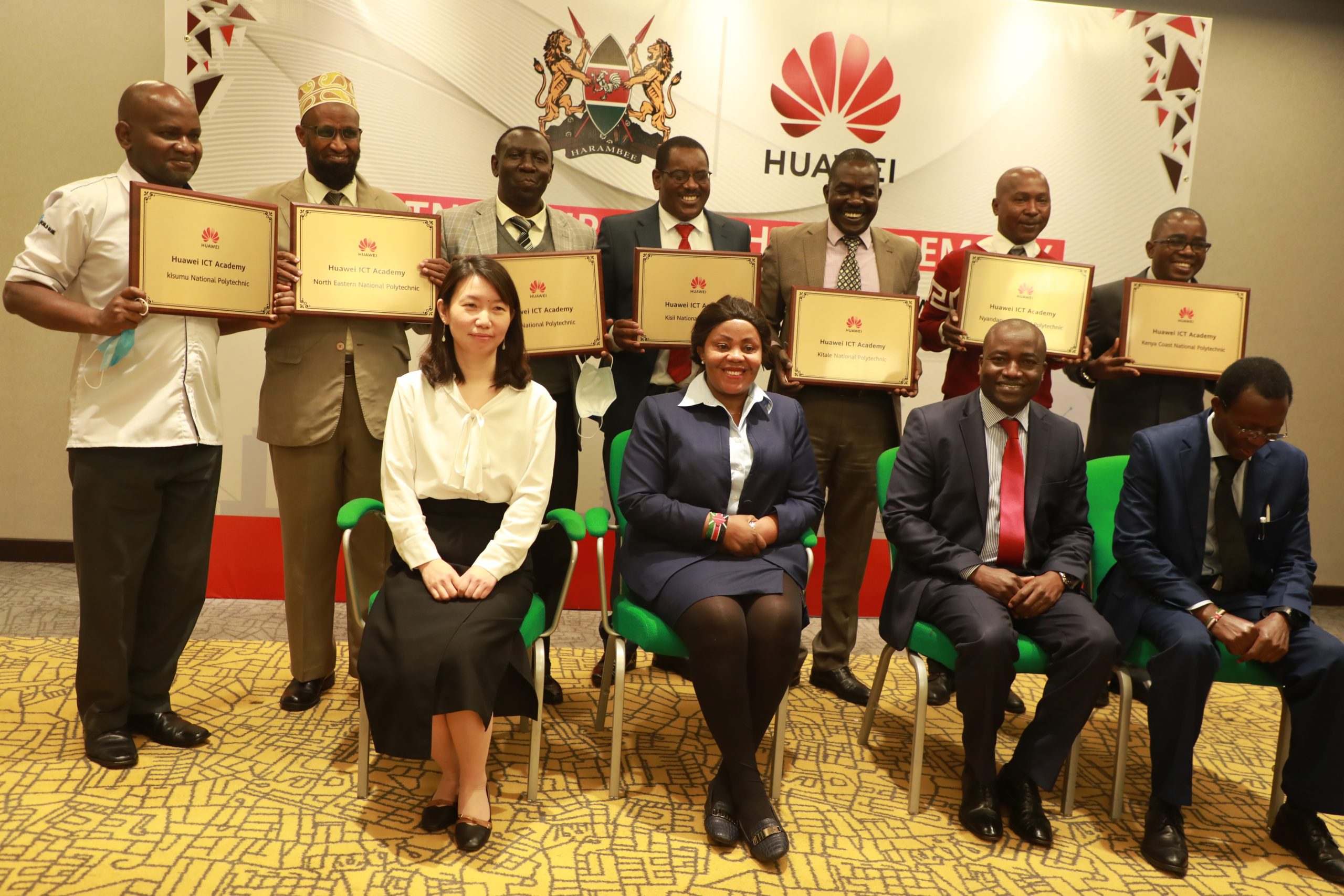By Mical Imbukwa
Huawei has today signed a partnership with the Ministry of Education’s State Department for Vocational and Technical Training with the intention of collaborating to enhance ICT development within technical education and training.
The MoU will see institutions from across the country partner to enhance capacity building among their 150 trainers, whilst offering industry level training to over 1000 students to better prepare them to work in the ICT industry among other key areas.
The MoU was signed by Dr. Margeret Mwakima, Principal Secretary State Department for Vocational Technical Training and Fiona Pan Deputy CEO, Huawei Kenya.
Speaking during the event, Dr. Mwakima stated that the Ministry has taken note of Huawei initiatives to develop the ICT and digital talent of the youth in the country and beyond, adding that the partnership is geared towards the expansion of Huawei ICT Academies in TVET institutions.
“This partnership reinforces Huawei’s commitment in developing local ICT talent whilst bridging the digital skills gap especially at a time when digital technology is developing rapidly,” she noted
Mwakima noted that with the recent roll out of 5G and other emerging technologies such as Artificial intelligence, Big Data and Cloud services, it is important that the country cultivates a workforce necessary to meet the growing demands within the ICT industry.
Deputy CEO Huawei kenya, Ms. Fiona Pan, noted that as Huawei, they believe Kenya must have a skilled workforce empowered and equipped to take up new opportunities that new and emerging technologies will present as they work towards achieving a digital economy
Representing Eng. Stephen Rukaria, Principal, Meru National Polytechnic, Orina Makori stated that, embracing Competence Based Education and Training (CBET) curriculum like the Huawei professional courses ensured that skills imparted are industry relevant.
According to a report released by World Bank, it is estimated that 230 million jobs in Sub-Saharan Africa will require digital skills by 2030. It is therefore critical for everyone to partake in the development and therefore take advantage of the opportunities brought about by the ever changing digital economy.
The collaboration not only aims at improvement of the ICT infrastructure within the institutions, but also support in administering ICT skills survey to allow for a better understanding of the state and level of ICT skills and better address them.
The alliance also targets provision of industry linkages and opportunities to the students with the aim to offer job or internship opportunities through the Huawei ICT Academy program. Lastly, cooperation to enhance the competency based curriculum at the Vocational and Technical Training institutions.

